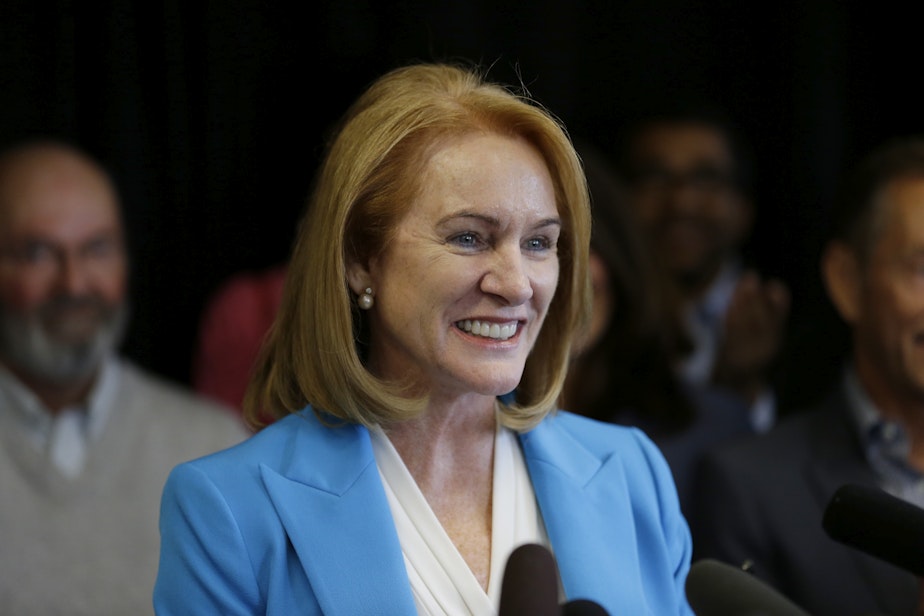How does killing a bike lane square with Seattle's climate goals?

Seattle needs to cut carbon dioxide emissions from transportation far faster than it's currently doing, according to its current climate action plan.
But on Tuesday, the city announced it would kill a plan to put in a bike lane along 35th Avenue in Northeast Seattle after protests by businesses and residents.
That decision has enraged advocates like Tom Fucoloro at the Seattle Bike Blog. He wrote that the decision “works against the city’s climate change goals, which rely in part on shifting a lot more car trips to bicycles in every part of the city."
How does killing a bike lane square with the city’s climate change goals?
Mayor Jenny Durkan’s office sent KUOW a statement Wednesday in answer to that question.
For one thing, the office said, changes to 35th will help mass transit riders get where they need to go.
Sponsored
That’s based on the fact that the new plan takes away some parking along one side of the street (but not for a bike lane). The city will instead add a new center turn lane to improve traffic “flow.”
Durkan’s office believes that will benefit not just cars, but also the thousands of bus riders who travel this section of 35th.
The mayor’s office also said the city is still forging ahead with bike lanes elsewhere. The city built over 10 miles of bike lanes in 2018 and over 10 miles are expected to be built this year.
Those numbers are unlikely to satisfy advocates who argue the mayor is not committed to the Bike Master Plan.
In addition, the mayor’s office said it's looking at other ways of addressing climate change, including congestion pricing or road tolling, which would target vehicles headed into the downtown core, as well as other carbon dioxide reduction programs.
Sponsored
But will it be enough to meet the city’s own climate change goals for reducing carbon dioxide emissions?
So far, Seattle is heading in the opposite direction. The city’s carbon dioxide emissions from cars and trucks actually got worse in the last report.
“Despite 17 years of promises to lead the nation in reducing climate-wrecking carbon pollution," KUOW's John Ryan wrote, "Seattle’s emissions continue to increase."
The Mayor's office's complete statement is here:
The City of Seattle is committed to meeting our 2035 climate goals and remaining a climate leader. One key way to reduce climate pollution is by reducing emissions from transportation, including from single-occupancy vehicles. That’s why continue to expand access to transit, focus on safe routes for walking and biking, and continue to study ways to manage congestion downtown.
Sponsored
Based on community feedback and SDOT’s recommendation, we believe this design will help us improve safety for all travelers on 35th Ave by providing better definition of the travel lanes and slowing vehicle speeds. Additionally, the new design will allow efficient transit travel through the corridor with southbound buses making in-lane stops at the curb. Investments such as this and others to improve transit speed and reliability are a key strategies to help us meet our climate goals and will provide a benefit for the approximately 900 daily riders boarding along this section of 35th Ave NE – and the more than 5,000 daily riders of Routes 64 and 65.
An efficient and connected bike network is an important component of this work. In partnership with the 35th Ave NE neighborhood, the Seattle Department of Transportation is proposing enhancements to the 39th Ave NE greenway to help connect bicyclists to other bike facilities and transit hubs, including better signage throughout the corridor and crossing enhancements at various intersections in the neighborhood.
We hope to continue developing a strong relationship with community members to help us take a holistic look at future transportation and mobility projects in northeast Seattle.
Correction: An earlier version of this story misspelled Tom Fucoloro's name.




